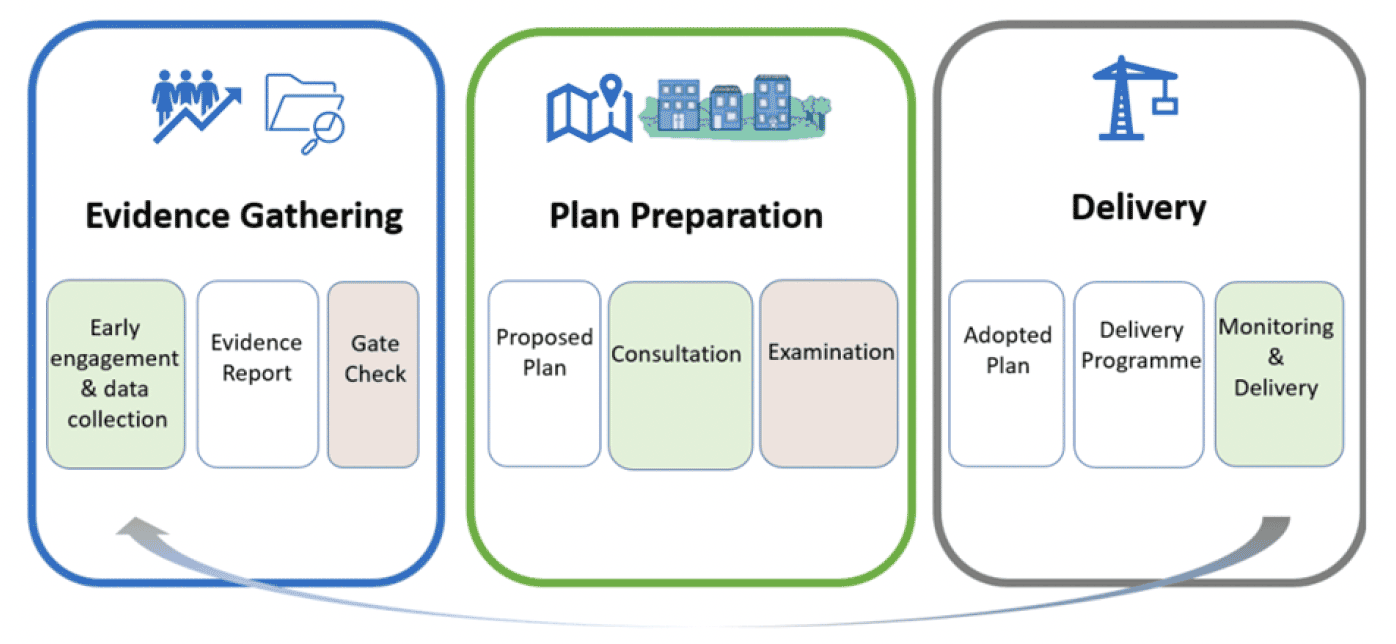Play Sufficiency Assessment Regulations 2023: planning guidance
This guidance sets out the explanations and expectations of the provisions in the Play Sufficiency Assessment Regulations 2023. It supports the implementation of the Regulations, bringing together requirements from the Act and advice with regard to the preparation of the Play Sufficiency Assessment.
Introduction
About the guidance
1. This guidance supports the implementation of the Town and Country Planning (Play Sufficiency Assessment) (Scotland) Regulations 2023[1], which came into force on 19 May 2023.
2. The guidance has been prepared based on the information and learning gathered through working with relevant stakeholders. This includes working group meetings and wider stakeholder workshops which involved local authorities, during the preparation of the draft Regulations. Much of the content in the guidance was included in the consultation paper[2], published on 17 December 2021.
3. Children and young people’s views were also gathered on issues relevant to the draft Regulations via tailored questionnaires which were completed online and/or in facilitated workshops.
4. The consultation responses gathered in the public consultation and from children and young people were taken into account in the revision and finalisation of the Play Sufficiency Assessment (PSA) Regulations. Proportionality was an important consideration in finalising the Regulations. Provisions were adjusted and simplified to avoid unnecessary or disproportionate resource implications, and to provide a clear and proportionate statutory framework for the preparation of PSAs.
5. The purpose of this guidance is to help explain and/or expand, where appropriate, the intention of the provisions in the Regulations. It includes suggestions for potential considerations, indicators and possible data sources that may be helpful to use in the preparation of PSAs.
6. The guidance is not exhaustive, nor it is intended to be prescriptive. In preparing PSAs, it will be important to consider local context and circumstances, thus tailoring the information gathering, engagement and assessment to suit. Whilst there are positive opportunities arising from the new duty, it will be important for planning authorities to undertake their functions in a proportionate way given the many areas that development plans seek to address.
7. To drive better practice and improvement, planning authorities and those involved in carrying out PSAs are encouraged to share their experience and good practice as the process is embedded in development planning across Scotland.
Why play is important
8. The Scottish Government wants Scotland to be the best place to grow up. Scotland’s Play Strategy[3] sets out a vision which values play as a life-enhancing daily experience for all our children and young people – in the home, in nurseries and schools and in the community.
9. Through play, children and young people can explore the world around them in a creative and engaging way. Research shows that children experience a range of health, wellbeing, developmental and educational benefits from outdoor play, and through learning in and connecting with nature.
10. According to the United Nations Convention on the Rights of the Child (UNCRC) General Comment 17[4], play is a fundamental and vital dimension of the pleasure of childhood, as well as an essential component of physical, social, cognitive, emotional and spiritual development.
11. Ensuring children’s access to play and engaging children in the planning system upholds their right to play and relax; their right to freedom of association and their right for their views to be heard and be given due consideration under UNCRC Articles 31, 15 and 12 respectively.
National planning policy context
12. National Planning Framework 4[5] (NPF4) Policy 21: Play, recreation and sport, sets out that local development plans (LDPs) should identify sites for sports, play and outdoor recreation for people of all ages, and support development proposals that protect, enhance or improve children’s access to play.
13. NPF4 recognises that many people, including children and young people, need better places to support their lifelong health and wellbeing and build their future resilience. It seeks to improve the quality of life of people across Scotland through facilitating places that enable local living, including providing access to playgrounds and green or blue spaces where there are opportunities for relaxation and informal play.
14. Ensuring all children have access to good quality play opportunities will deliver the policy objectives contained in NPF4 and help local authorities to uphold the rights of children.
Local development planning context
15. Planning authorities are required by law to prepare an LDP for all parts of their district. LDPs must be prepared at intervals of no more than 10 years, or when required by the Scottish Ministers.
16. There are three key stages in local development planning, comprising the following processes as shown in Figure 1:

17. The preparation of a PSA forms part of the Stage 1 processes as part of early engagement and data collection. It is intended to help ensure there is a good understanding of the sufficiency of both formal and informal play spaces for children across planning authority areas. The evidence gathered in the PSA should be used to inform provisions for play in the preparation of LDPs.
18. The legislative duty requires that a planning authority must assess the sufficiency of play opportunities in its area for children in preparing an evidence report. The Evidence Report will be subject to independent assessment at the ‘Gate Check’, which will check that there is a sound evidence base on which to prepare an LDP.
19. Further details on the process for preparing and aims and objectives of LDPs are included in the Development planning regulations[7] and the accompanying Local development planning guidance[8].
Contact
Email: Chief.Planner@gov.scot
There is a problem
Thanks for your feedback